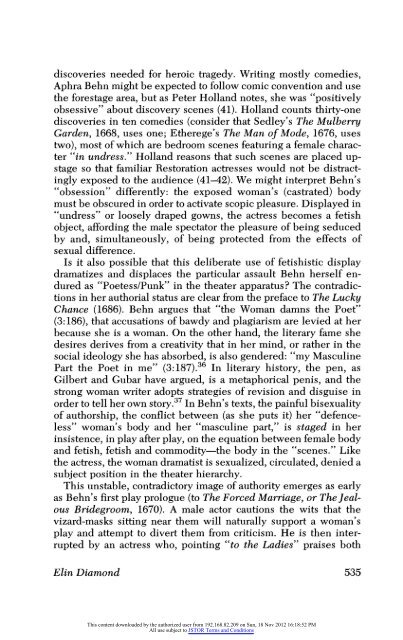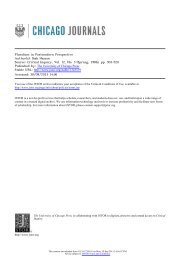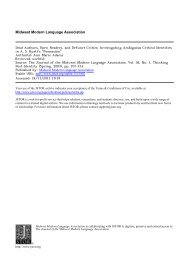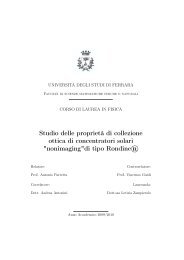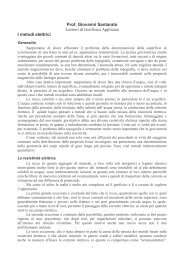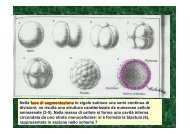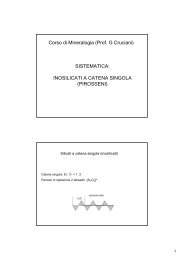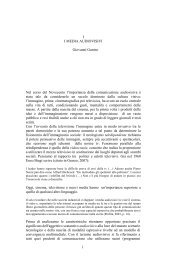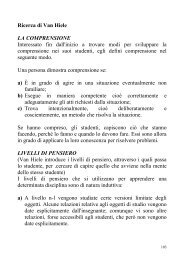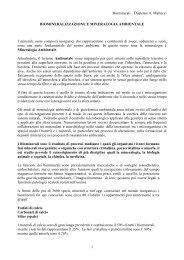Gestus and Signature in Aphra Behn's the Rover
Gestus and Signature in Aphra Behn's the Rover
Gestus and Signature in Aphra Behn's the Rover
Create successful ePaper yourself
Turn your PDF publications into a flip-book with our unique Google optimized e-Paper software.
discoveries needed for heroic tragedy. Writ<strong>in</strong>g mostly comedies,<br />
<strong>Aphra</strong> Behn might be expected to follow comic convention <strong>and</strong> use<br />
<strong>the</strong> forestage area, but as Peter Holl<strong>and</strong> notes, she was "positively<br />
obsessive" about discovery scenes (41). Holl<strong>and</strong> counts thirty-one<br />
discoveries <strong>in</strong> ten comedies (consider that Sedley's The Mulberry<br />
Garden, 1668, uses one; E<strong>the</strong>rege's The Man of Mode, 1676, uses<br />
two), most of which are bedroom scenes featur<strong>in</strong>g a female character<br />
"<strong>in</strong> undress." Holl<strong>and</strong> reasons that such scenes are placed upstage<br />
so that familiar Restoration actresses would not be distract<strong>in</strong>gly<br />
exposed to <strong>the</strong> audience (41-42). We might <strong>in</strong>terpret <strong>Behn's</strong><br />
"obsession" differently: <strong>the</strong> exposed woman's (castrated) body<br />
must be obscured <strong>in</strong> order to activate scopic pleasure. Displayed <strong>in</strong><br />
"undress" or loosely draped gowns, <strong>the</strong> actress becomes a fetish<br />
object, afford<strong>in</strong>g <strong>the</strong> male spectator <strong>the</strong> pleasure of be<strong>in</strong>g seduced<br />
by <strong>and</strong>, simultaneously, of be<strong>in</strong>g protected from <strong>the</strong> effects of<br />
sexual difference.<br />
Is it also possible that this deliberate use of fetishistic display<br />
dramatizes <strong>and</strong> displaces <strong>the</strong> particular assault Behn herself endured<br />
as "Poetess/Punk" <strong>in</strong> <strong>the</strong> <strong>the</strong>ater apparatus? The contradictions<br />
<strong>in</strong> her authorial status are clear from <strong>the</strong> preface to The Lucky<br />
Chance (1686). Behn argues that "<strong>the</strong> Woman damns <strong>the</strong> Poet"<br />
(3:186), that accusations of bawdy <strong>and</strong> plagiarism are levied at her<br />
because she is a woman. On <strong>the</strong> o<strong>the</strong>r h<strong>and</strong>, <strong>the</strong> literary fame she<br />
desires derives from a creativity that <strong>in</strong> her m<strong>in</strong>d, or ra<strong>the</strong>r <strong>in</strong> <strong>the</strong><br />
social ideology she has absorbed, is also gendered: "my Mascul<strong>in</strong>e<br />
Part <strong>the</strong> Poet <strong>in</strong> me" (3:187).36 In literary history, <strong>the</strong> pen, as<br />
Gilbert <strong>and</strong> Gubar have argued, is a metaphorical penis, <strong>and</strong> <strong>the</strong><br />
strong woman writer adopts strategies of revision <strong>and</strong> disguise <strong>in</strong><br />
order to tell her own story.37 In <strong>Behn's</strong> texts, <strong>the</strong> pa<strong>in</strong>ful bisexuality<br />
of authorship, <strong>the</strong> conflict between (as she puts it) her "defenceless"<br />
woman's body <strong>and</strong> her "mascul<strong>in</strong>e part," is staged <strong>in</strong> her<br />
<strong>in</strong>sistence, <strong>in</strong> play after play, on <strong>the</strong> equation between female body<br />
<strong>and</strong> fetish, fetish <strong>and</strong> commodity-<strong>the</strong> body <strong>in</strong> <strong>the</strong> "scenes." Like<br />
<strong>the</strong> actress, <strong>the</strong> woman dramatist is sexualized, circulated, denied a<br />
subject position <strong>in</strong> <strong>the</strong> <strong>the</strong>ater hierarchy.<br />
This unstable, contradictory image of authority emerges as early<br />
as <strong>Behn's</strong> first play prologue (to The Forced Marriage, or The Jealous<br />
Bridegroom, 1670). A male actor cautions <strong>the</strong> wits that <strong>the</strong><br />
vizard-masks sitt<strong>in</strong>g near <strong>the</strong>m will naturally support a woman's<br />
play <strong>and</strong> attempt to divert <strong>the</strong>m from criticism. He is <strong>the</strong>n <strong>in</strong>terrupted<br />
by an actress who, po<strong>in</strong>t<strong>in</strong>g "to <strong>the</strong> Ladies" praises both<br />
El<strong>in</strong> Diamond 535<br />
This content downloaded by <strong>the</strong> authorized user from 192.168.82.209 on Sun, 18 Nov 2012 16:18:52 PM<br />
All use subject to JSTOR Terms <strong>and</strong> Conditions


